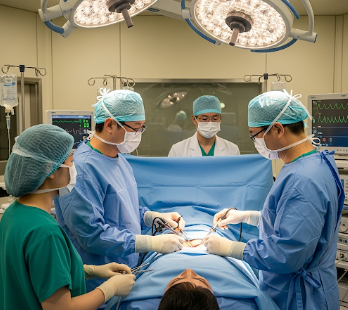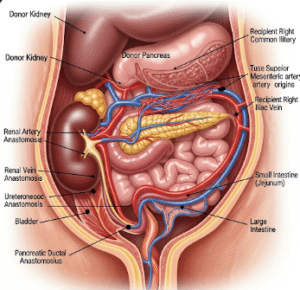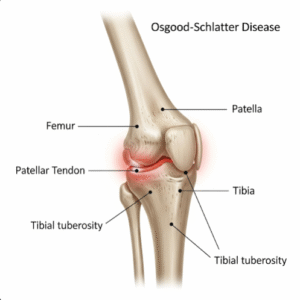Overview
An elective splenectomy is a planned surgical procedure to remove the spleen. Unlike emergency splenectomies, which are performed due to trauma or life-threatening rupture, elective splenectomy is scheduled in advance for patients with chronic conditions, blood disorders, immune system problems, or enlarged spleen (splenomegaly).
In South Korea, elective splenectomy is performed in advanced hospitals using minimally invasive laparoscopic or robotic techniques, ensuring faster recovery, less pain, and fewer complications. Korea is recognized for its cutting-edge surgical expertise and excellent patient care, making it a reliable destination for this specialized procedure.
What is an Elective Splenectomy?
An elective splenectomy is the surgical removal of the spleen when it is medically necessary but not urgent. The spleen, located in the upper left side of the abdomen, plays a role in:
- Filtering old or damaged blood cells
- Supporting immune defense against infections
- Storing red blood cells and platelets
Conditions that may require an elective splenectomy include:
- Blood disorders (such as hereditary spherocytosis, sickle cell disease, thalassemia, immune thrombocytopenia purpura)
- Enlarged spleen causing discomfort or anemia
- Cysts, tumors, or abscesses in the spleen
- Certain autoimmune conditions where the spleen destroys healthy blood cells
What are the benefits?
Elective splenectomy provides multiple health and quality-of-life benefits:
- Improves blood counts → effective in treating chronic anemia or low platelet levels.
- ➤ Prevents life-threatening complications in patients with splenic tumors or massive enlargement.
- ➤ Enhances quality of life by reducing fatigue, weakness, or abdominal pain.
- ➤ Minimally invasive surgery in Korea means smaller incisions, faster recovery, and reduced hospital stay.
- ➤ Prevents recurrence of certain immune-mediated diseases that damage blood cells.
- ➤ Offers long-term improvement for patients who do not respond to medications.
Procedure Details
1) How should I prepare for Elective Splenectomy?
Preparation is key to ensure safety and a smooth recovery:
- Medical evaluation → blood tests, imaging scans (CT/MRI), and physical exam.
- Vaccinations → patients must receive vaccines against infections (pneumococcal, meningococcal, Haemophilus influenzae type B) since the spleen helps fight bacteria.
- Medication review → certain blood-thinning drugs may need to be stopped.
- Fasting → no food or drink 6–8 hours before surgery.
- Hospital admission → usually required a few hours before surgery.
2) What happens during the procedure Elective Splenectomy?
The surgery may be done through laparoscopic (keyhole) or open surgery, depending on the case:
- Anesthesia → general anesthesia is given to ensure you are asleep and pain-free.
- Incision → laparoscopic splenectomy uses 3–4 small incisions; open splenectomy requires a larger abdominal cut.
- Spleen removal → the surgeon carefully detaches blood vessels and removes the spleen.
- Inspection and closure → surrounding tissues are checked, and incisions are closed with stitches or staples.
In Korea, laparoscopic splenectomy is most common, offering shorter recovery time and less scarring.
3) What happens after a Elective Splenectomy?
- Immediate recovery → monitored in recovery room for several hours.
- Pain control → medications help manage discomfort.
- Hospital stay → typically 3–5 days (shorter with laparoscopic surgery).
- Diet and mobility → gradual return to eating and walking encouraged within 24 hours.
- Immunity support → antibiotics or vaccines may be given to reduce infection risks.
Risks / Benefits
Potential Risks:
- Infection risk (due to reduced immune function without the spleen)
- Bleeding or blood clot formation
- Injury to nearby organs (pancreas, stomach, colon)
- Risk of overwhelming post-splenectomy infection (rare but serious)
Key Benefits:
- Improved blood-related health (higher platelet and red blood cell counts)
- ➤ Relief from symptoms like fatigue, pain, or recurrent infections
- ➤ Reduced need for long-term medications
- ➤ High success rates in Korea with modern surgical approaches
Recovery and Outlook
- Physical recovery → most patients return to normal activities within 2–4 weeks (laparoscopic) or 6–8 weeks (open surgery).
- Long-term immunity → without the spleen, patients may be more vulnerable to infections, so lifelong vaccination updates and preventive care are essential.
- Outlook → most patients experience significant improvement in quality of life and symptoms after splenectomy.
- In Korea, enhanced recovery protocols and follow-up care ensure excellent long-term outcomes.
When To Call the Doctor
After an elective splenectomy, you should contact your doctor immediately if you notice:
- High fever or chills (possible infection)
- ➤ Severe abdominal pain or swelling
- ➤ Unusual bleeding or bruising
- ➤ Shortness of breath or chest pain
- ➤ Persistent nausea or vomiting
- ➤ Signs of wound infection (redness, pus, or foul odor at incision site)
Best Korea Option / Process
South Korea offers some of the best medical facilities in Asia for elective splenectomy:
- Advanced laparoscopic and robotic surgery → less invasive, faster recovery.
- Highly trained surgical teams specializing in hematology and abdominal surgery.
- State-of-the-art hospitals equipped with infection control protocols.
- Comprehensive pre- and post-operative care, including vaccination programs and long-term monitoring.
- Affordable medical packages compared to Western countries while maintaining international standards.
For patients with blood disorders or splenic diseases, Korea provides world-class treatment options and consistently excellent surgical outcomes.













